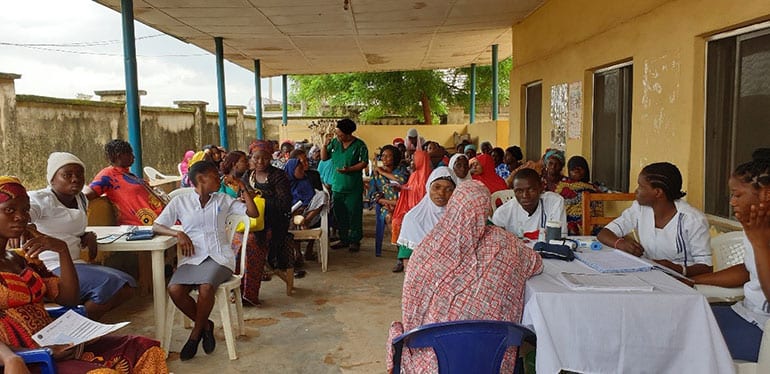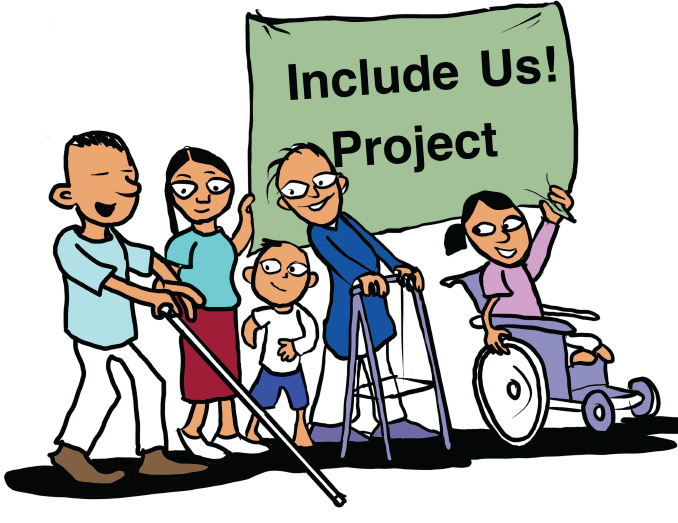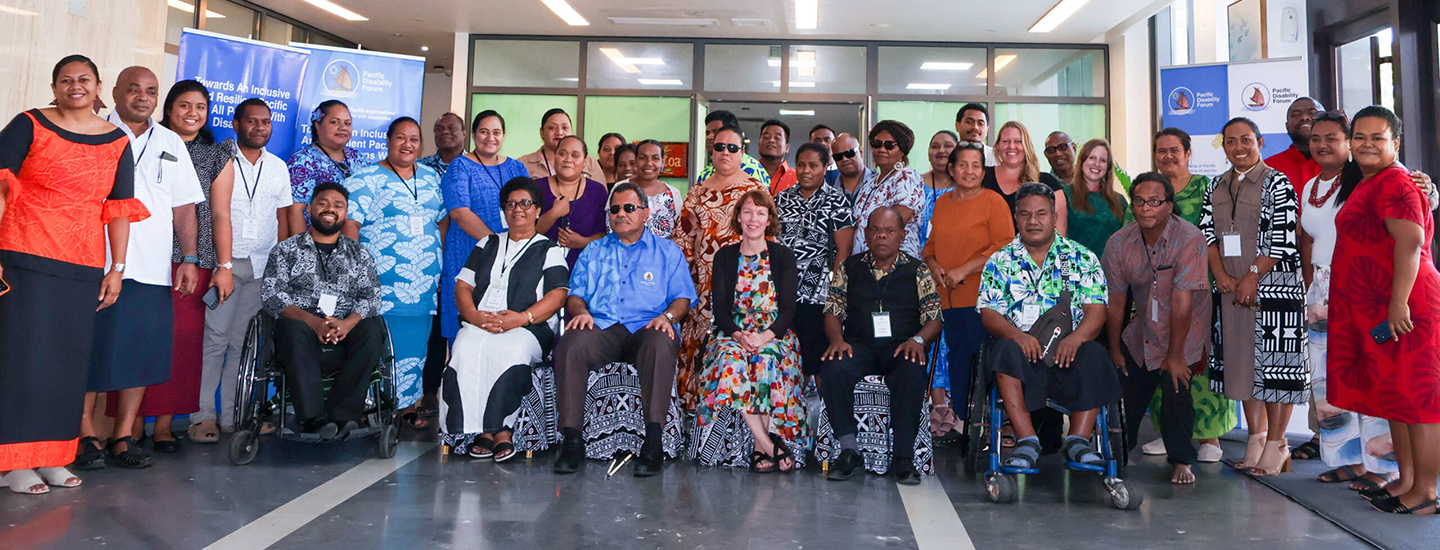Dignity and choice: sexual and reproductive health rights for women and girls with disabilities
Stories | January 18, 2022 | Author: Teresa Thomson, Disability and Gender Equality Advisor and Belinda Bayak-Bush, Disability Inclusion Advisor, CBM
Women and girls with disabilities experience complex layers of marginalisation and face heightened barriers to accessing health information and services, including sexual and reproductive health care[i]. Some of these challenges include:
- Exclusion from maternal health care
- Forced sterilisation and abortion
- Poor quality sexual and reproductive health care.
“…The CRPD ensures health rights but often this is spoken about in general terms. We are trying to focus on sexual and reproductive health rights because often these are forgotten about for women with disabilities. This is because there are so many assumptions, people think women with disabilities don’t count as human beings, they think they are asexual or they think that if a women with disabilities marries a men with a disability they will have a child with a disability. There are a lot of misconceptions…
“We pay a lot of attention to services and have been lobbying for accessible hospitals for many years. The thing is that when you say ‘accessible hospitals’ people might think of ramps but do they think about the needs of, for example, pregnant women with disabilities? If you go to the hospital in labour there is no labour bed suitable for women with disabilities and the doctors aren’t sensitised.” Rama Dhakal, National Federation of the Disabled Nepal (NFDN)
Attitudes, stigma and insufficient knowledge and training all play a role in perpetuating discrimination; the consequences of this exclusion when it comes to maternal health can be dire.
Common misconceptions and stereotypes about women with disabilities such as that they are asexual, cannot make their own decisions, become pregnant or be a good mother, often leads health care workers to discount their needs. This often means that ante-natal care is not sought in the first place and this increases the risk of pregnancy and labour complications[ii]. It also has a follow-on negative impact on access to post-natal care for both mother and child.
The attitudinal barriers to quality maternal health care for women and girls with disabilities also lead to systemic violence against women and girls, who are subject to involuntary reproductive interventions such as sterilisation and hysterectomies at rates up to three times higher than other women[iii]. They also face further significant physical, financial and communication barriers to accessing reproductive health care, including user fees, transport costs and lack of sign language knowledge or interpreters[iv].
At CBM we work with governments and local partners in partnership with people with disabilities to ensure that disability inclusion is mainstreamed in all health services.
To uphold the sexual and reproductive health rights of women and girls with disabilities in particular we need to make sure that we are:
- Supporting increased agency of women and girls with disabilities so they can make their own sexual and reproductive health decisions, including measures that ensure voluntary and informed consent.
- Building capacity of DPOs to advocate and play a significant role in supporting women and girls with disabilities to negotiate sexual and reproductive health services on their own terms[v].
- Supporting DPO advocacy to governments for available and accessible health facilities – including physical spaces, medical equipment, transportation and outreach.
- Assisting CBM partners to provide accessible goods and services, sensitive to the needs of women and girls with disabilities, with reasonable accommodations provided as needed.
- Assisting partners to provide accessible information on sexual and reproductive health rights in alternate formats, e.g., braille, easy read.
- Providing disability inclusion training to health workers/staff so they are aware and know how to provide services that uphold the dignity and autonomy of people with disabilities.
CBM supports sexual and reproductive health care in Nigeria
Ensuring quality, accessible health care is a key aim of work CBM undertakes with local partners in Nigeria. Through maternal health outreach clinics, our partners realised that many women and girls with disabilities were present in the community, and that they faced significant additional attitudinal, communication and physical barriers to accessing services. To address this, they are collaborating with a local Disabled People’s Organisation and Muslim Women’s Association to ensure that services are culturally appropriate and accessible for women and girls with disabilities.

[i] CBM Australia, 2018. Leave No One Behind: Gender Equality, Disability Inclusion and Leadership for Sustainable Development. Available at https://cbm.org.au/wp-content/uploads/2019/02/CBM-Leave-No-One-Behind-Gender-Equility.pdf
[ii] Women Enabled International, 2018. Sexual and Reproductive Health and Rights of Women and Girls with Disabilities. Available at https://womenenabled.org/report-type/fact-sheets/
[iii] United Nations General Assembly, 2017. Sexual and reproductive health and rights of girls and young women with disabilities: Report of the Special Rapporteur on the rights of persons with disabilities. Available at https://www.ohchr.org/Documents/Issues/Disability/A_72_133_EN.docx
[iv] CBM Australia, 2018. Leave No One Behind: Gender Equality, Disability Inclusion and Leadership for Sustainable Development.
[v] CBM-Nossal Partnership for Disability Inclusive Development & Ra’es Hadomi Timor Oan, 2016. Access to maternal and newborn health services for women with disabilities in Timor-Leste. Available at https://dfat.gov.au/about-us/publications/Pages/timor-leste-access-of-women-with-disabilities-to-maternal-newborn-health-services.aspx
https://www.cbm.org.au/stories/dignity-and-choice-sexual-and-reproductive-health-rights-for-women-and-girls-with-disabilities
Related Stories

Vision for all: Why access to eye health is a precondition for inclusion
For millions of people in India, particularly those living...

Easy Read your way through our evaluation report
At CBM Australia, we recognise that accessibility is not optional – it is a...

Growing Stronger Together: Supporting OPDs across the Pacific
CBM Australia is proud to partner with Pacific Disability Forum on the Growing Stronger...
